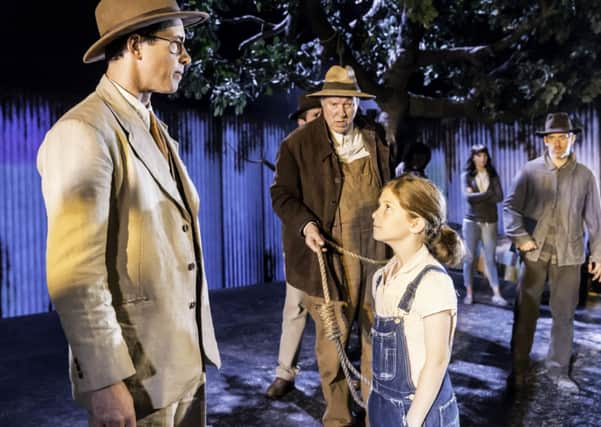Morality tale with heart and soul that speaks to us all


It is one of the most powerful, influential and, many would argue, important novels of the past century.
Harper Lee’s To Kill a Mockingbird – her only novel – won a Pulitzer for its reclusive author and contributed towards the civil rights movement following its publication in 1960. It, perhaps more than any other novel, demonstrates the power of words to affect change in the world.
Advertisement
Hide AdAdvertisement
Hide AdSuch is its lasting power that this tale of coming of age and racial prejudice in 1930s America continues to resonate and there was an outcry just last year when Michael Gove appeared to want to see the book removed from the reading list of British educational establishments.
Following the outcry – and it was vociferous and sustained – Gove made the sensible decision to clarify his position. He was not about to kill Mockingbird, it would have been political suicide.
Given the long-term planning that goes into a theatre tour, it’s sensible to imagine that the decision to bring a new production of the stage version of To Kill a Mockingbird on tour around the UK was made before Gove’s – misunderstood – declaration. While that’s almost certainly the case, it’s also tempting to imagine a canny theatre producer noticing how much people clearly still love this now 45-year-old novel and bringing it back to the stage.
This version of Lee’s story, adapted by Christopher Sergel, was seen at the West Yorkshire Playhouse in 2006 and at York Theatre Royal in 2011. Both versions starred Duncan Preston as Atticus Finch and in both versions. A man aware of his own mortality, Preston played Atticus as Lee paints him. In the famous and celebrated 1962 film version Gregory Peck plays the most moral man in Maycomb County. It is a searing performance but Peck’s jawline alone makes him seem immortal. The indications are that Daniel Betts, who takes the lead in the production heading to the Sheffield Lyceum at the end of this month, is more Preston than Peck.
Advertisement
Hide AdAdvertisement
Hide AdWhen the play came to the West Yorkshire Playhouse in 2006 I wrote: does the world need another incarnation of Harper Lee’s story? The answer is, of course, yes; we will need this story as long as human beings have prejudices. The world today needs another version of Mockingbird perhaps more than it has in years.
It is the ultimate antidote to the poison of prejudice. As Atticus Finch explains to his impressionable daughter Scout, in what might be considered the key speech in the whole book: “You never really understand a person until you consider things from his point of view... until you climb into his skin and walk around in it.”
It is that moral lesson that lays at the heart of the book, but also the key to why it has sold more than 30 million copies and been translated into 40 languages. It might not seem this way, but ultimately we all want to understand others and be understood ourselves. It is why Lee’s book tapped into so many souls in so many countries. Oprah Winfrey called it the ultimate American story but it is a truly universal story, belonging to all of us.
The director of this latest production, Timothy Sheader has stripped back the story to its elements and allows it to simply tell itself, conjure all it needs to by itself.
It is why the prospect of the story being told once again, on Yorkshire stages, is such an attractive, exciting and important prospect.